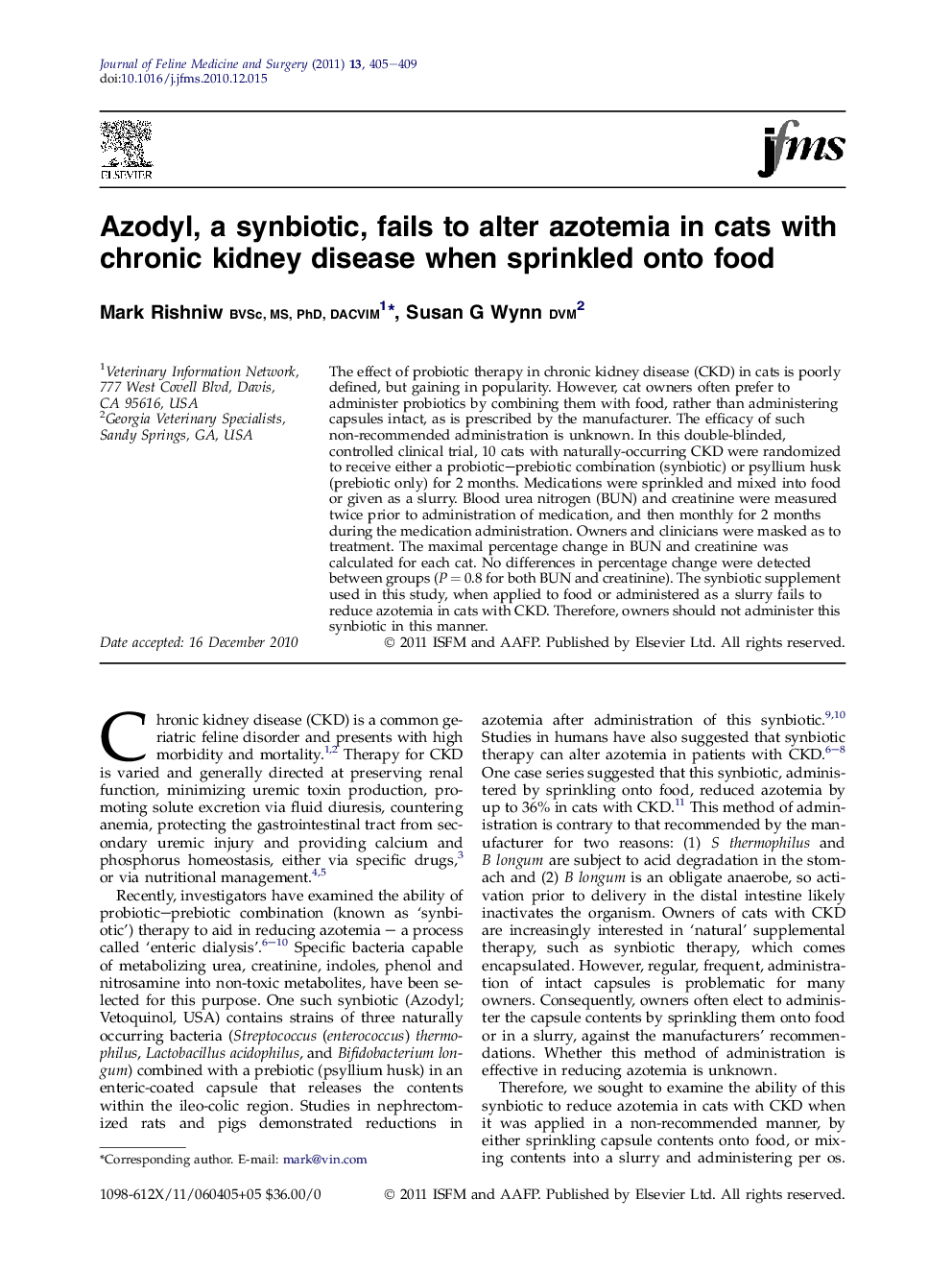| Article ID | Journal | Published Year | Pages | File Type |
|---|---|---|---|---|
| 2397775 | Journal of Feline Medicine & Surgery | 2011 | 5 Pages |
The effect of probiotic therapy in chronic kidney disease (CKD) in cats is poorly defined, but gaining in popularity. However, cat owners often prefer to administer probiotics by combining them with food, rather than administering capsules intact, as is prescribed by the manufacturer. The efficacy of such non-recommended administration is unknown. In this double-blinded, controlled clinical trial, 10 cats with naturally-occurring CKD were randomized to receive either a probiotic–prebiotic combination (synbiotic) or psyllium husk (prebiotic only) for 2 months. Medications were sprinkled and mixed into food or given as a slurry. Blood urea nitrogen (BUN) and creatinine were measured twice prior to administration of medication, and then monthly for 2 months during the medication administration. Owners and clinicians were masked as to treatment. The maximal percentage change in BUN and creatinine was calculated for each cat. No differences in percentage change were detected between groups (P = 0.8 for both BUN and creatinine). The synbiotic supplement used in this study, when applied to food or administered as a slurry fails to reduce azotemia in cats with CKD. Therefore, owners should not administer this synbiotic in this manner.
